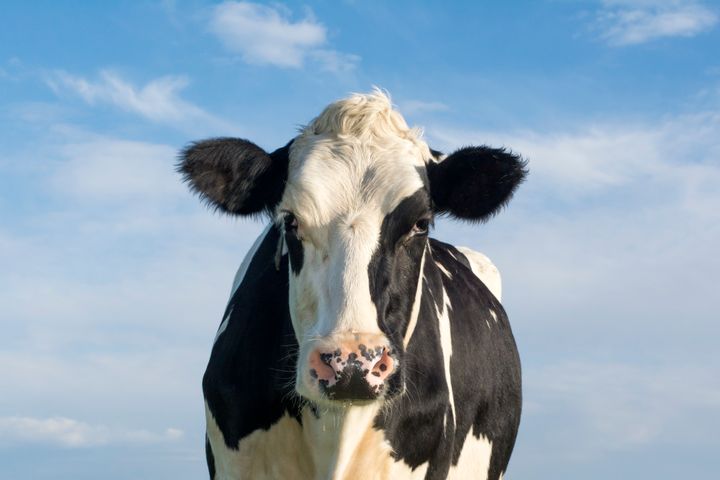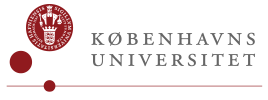Dangerous Variant of Salmonella Still Not Eradicated – Researchers Point to the Solutions
The infectious and multi-resistant cattle disease Salmonella Dublin can be fatal to both humans and animals and causes significant losses for farmers. Although Denmark has attempted to eradicate the disease since 2008, it has not yet succeeded. A study from the University of Copenhagen points to possible reasons – and the necessary solutions.

While we’ve all heard of salmonella in chickens, salmonella in cows is likely unknown to many. Nevertheless, Salmonella Dublin is a disease that has been present in cattle herds for decades – in Denmark as well as many other countries. And it is on the rise globally. It causes pneumonia, blood poisoning and abortions and kills many thousands of calves and cows every year.
Although Salmonella Dublin infects humans far less frequently than the more regular salmonella, there is every reason to take it seriously: it is significantly more dangerous and kills up to 12% of those who become infected. At the same time, it is often resistant to antibiotics. Infection can occur through contact with animals as well as through unpasteurised dairy products and undercooked meat.
Still, Denmark has not managed to eradicate the disease – despite a national eradication plan launched in 2008, which set out to completely eliminate the disease. Today, the infection rate is estimated to be around 5% of Danish cattle herds, down from 20-25% in 2008. In contrast, the infection has increased in recent years to about 18% of herds in the United States and as much as 60% in the United Kingdom.
“Salmonella Dublin is not just a serious threat in the barn. Globally, it is a potential public health risk that is likely to grow as antibiotic resistance spreads. This is a bacterium that kills people every year, and it is high time we do more to combat it,” says Dagim Belay, Assistant Professor at the Department of Food and Resource Economics.
He and fellow researcher Jakob Vesterlund Olsen are behind a new study examining the economic impact of Salmonella Dublin across all Danish dairy farms over a 10-year period.
Invisible Infection, High Cost
"Denmark has made great progress in the fight against this disease – so why have we not yet reached the goal? One possible reason is that farmers may not have a strong enough incentive to fight it. However, our research shows that the consequences are not only a matter of health – there are also hidden financial losses associated with infection,” says Senior Advisor Jakob Vesterlund Olsen from the Department of Food and Resource Economics.
The study shows that Salmonella Dublin leads to increased calf mortality, lower milk yield, higher medication costs and more veterinary treatments.
“The tricky thing about Salmonella Dublin is that it often flies under the radar. Many herds are infected without visible symptoms, meaning both the disease and the economic losses can develop gradually without being noticed. Infection reduces productivity and weakens the animals year after year – and the financial losses accumulate over time,” says Dagim Belay.
Cattle farms with high levels of infection face average additional annual costs of around EUR 11,300. But even herds with low levels of infection face financial losses. A typical herd of 200 dairy cows with low-level infection incurs extra variable costs of approximately EUR 6700 per year.
“Our estimates are conservative. They are based on data from a Danish system that already has a control programme – unlike most other countries. If similar estimates were made in the UK or the US, the economic costs would be significantly higher,” says Dagim Belay.
Time for Stronger Action
The researchers highlight a key problem in how Danish authorities currently monitor Salmonella Dublin. The Danish Veterinary and Food Administration measures the level of antibodies against the bacterium in the farm’s milk tank, and if the antibody level is below a certain threshold, the herd is deemed salmonella-free.
“Threshold-based regulation has been instrumental in helping Denmark substantially reduce the prevalence of Salmonella Dublin to its current low level. But the current threshold is rather arbitrarily set. And our data shows that production losses already occur at infection levels well below that threshold,” says Jakob Vesterlund Olsen.
“So, it is also crucial to give farmers stronger incentives to eradicate the problem. For example, by offering subsidies to farmers who invest in prevention, early detection and control measures, or by introducing a discounted milk price for milk from chronically infected herds,” says Dagim Belay.
Finally, the researchers urge authorities to provide targeted information to cattle producers about the hidden costs of Salmonella Dublin and about effective control strategies.
ABOUT THE STUDY:
- The researchers analysed how Salmonella Dublin impacted all Danish dairy farms during the period 2011–2021.
- The study is published in the journal Agricultural Economics:
https://onlinelibrary.wiley.com/doi/epdf/10.1111/agec.70016
FACTS ABOUT SALMONELLA DUBLIN:
- Salmonella Dublin is an infectious and multidrug-resistant variant of the Salmonella bacterium, adapted to cattle but capable of infecting humans and other animals.
- For cattle, Salmonella Dublin can cause pneumonia, blood poisoning, abortions and death. In humans – especially the elderly, children, and immunocompromised individuals – it often leads to blood poisoning, hospitalisation, and has a fatality rate of up to 12%.
- According to the Statens Serum Institut, 20–30 human cases are recorded annually in Denmark.
- There are documented cases of infection from contact with cattle, manure and equipment - even in people who have not eaten untreated food.
- Read more about Denmark’s efforts to combat Salmonella Dublin on the Danish Veterinary and Food Administration’s website.
Keywords
Contacts
Dagim Belay
Assistant Professor (Tenure Track)
Department of Food and Resource Economics
University of Copenhagen
Email: dgb@ifro.ku.dk
T: +45 35 33 14 93
Jakob Vesterlund Olsen
Senior Advisor
Department of Food and Resource Economics
University of Copenhagen
Email: jvo@ifro.ku.dk
T: +45 35 33 35 88
Maria Hornbek
Journalist
UCPH Communication
University of Copenhagen
Email: maho@adm.ku.dk
M: +45 22 95 42 83
Links
Subscribe to releases from Københavns Universitet
Subscribe to all the latest releases from Københavns Universitet by registering your e-mail address below. You can unsubscribe at any time.
Latest releases from Københavns Universitet
Your Christmas decorations may be hiding a tiny bit of badger and toad16.12.2025 09:27:05 CET | Press release
Researchers at the University of Copenhagen have discovered that moss acts as a natural trap for environmental DNA. This discovery opens the door to using moss as a simple, gentle and inexpensive method of monitoring biodiversity – from birds and mammals to fungi, insects and microbes.
Din juledekoration gemmer måske på en lillebitte smule grævling og skrubtudse16.12.2025 09:17:58 CET | Pressemeddelelse
Forskere fra Københavns Universitet har opdaget, at mos fungerer som en DNA-fælde i naturen. Og den opdagelse åbner for mos som en enkel, billig og skånsom metode til at holde øje med biodiversiteten – fra fugle og pattedyr til svampe, insekter og mikrober.
Forskere genopliver gamle ærtesorter i enorm frøsamling: ”Et uudnyttet guldkammer til fremtiden”15.12.2025 10:29:09 CET | Pressemeddelelse
Med en ny AI-metode har forskere fra Københavns Universitet genopdaget 51 gamle ærtesorter, som ikke længere bruges i landbruget, men som kan vise sig lovende til produktion af plantebaserede fødevarer. Metoden er en genvej til at finde nye ressourcer i de grønne skatkamre, som genbankers enorme frøsamlinger udgør.
Fermentering gør havets grøntsager mere spiselige5.12.2025 06:18:59 CET | Pressemeddelelse
Tang har længe været hyldet som en bæredygtig superingrediens – men dens “fiskede” smag er en barriere for mange vestlige forbrugere. Nu viser et nyt studie fra Københavns Universitet, at fermentering med mælkesyrebakterier kan være nøglen til at få tangen til at glide ned.
P-piller kan forringe kvinders mentale trivsel2.12.2025 06:05:00 CET | Pressemeddelelse
Adgang til p-piller i ungdomsårene er forbundet med øget risiko for depression senere i livet. Især kan kvinder, der er genetisk disponeret for psykisk sygdom, risikere at blive ramt af bivirkningen. Det viser et nyt studie fra Københavns Universitet.
In our pressroom you can read all our latest releases, find our press contacts, images, documents and other relevant information about us.
Visit our pressroom